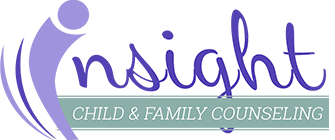An anxiety counselor works with patients who have a variety of anxiety disorders that are making their lives difficult at best and unbearable at worst. Some patients have a generalized anxiety that is manageable but never seems to go away while others have profound anxiety attacks. Some patients experience anxiety in social situations and others experience anxiety in chaotic environments. Four of the most common types of anxiety disorders are:
1 – Generalized Anxiety Disorder (GAD)
GAD is the most common type of anxiety disorder and affects tens of millions of people around the world. It produces chronic, exaggerated worrying about everyday life, without a specific cause. People suffering from GAD find it hard to concentrate and hard to finish routine tasks. Other symptoms of GAD include constant restlessness, irritation or edginess, fatigue, lethargy, muscle tension and an obsession with negative or anxiety-causing thoughts.
2 – Panic Disorder
Panic disorder is characterized by panic attacks, or sudden feelings of terror, that strike repeatedly and without warning. In addition, people who suffer from this disorder can have panic attacks out of fear of having panic attacks. Though most people think of feelings of panic as being a natural response to frightening situations, people who have panic disorder normally react strongly to situations that wouldn’t trigger a panic response in those without the disorder. The symptoms of panic disorder can mimic a heart attack and include chest pain, heart palpitations, dizziness and shortness of breath.
3 – Phobias
Most people have a specific fear triggered by something like spiders or heights; but for people with a phobia disorder, their reaction to their triggers are overpowering and seemingly irrational. Most people with this type of disorder can have several triggers that range from specific places to events to objects. Symptoms of severe phobic reactions include excessive, ever-present fear of a specific event, place or object, an instant feeling of terror when confronted with a trigger, an inability to control the fear reaction, going to great lengths to avoid a trigger and allowing the avoidance of triggers to interfere with daily life.
4 – Social Anxiety Disorder
Many people think social anxiety is the same as shyness; but for people with social anxiety disorder, social situations cause intense fear often driven by irrational worries about the social “humiliation” they feel can arise from “saying something stupid” or “not knowing what to say.” People with social anxiety disorders may not take part in conversations, contribute to class discussions or offer their ideas in public, which can lead to isolation. Panic attack symptoms are a common result of social anxiety disorder.
An anxiety counselor can help you to overcome, or be able to live with, your specific type of anxiety disorder; but only if you reach out for help. Call Insight Child & Family Counseling at (972) 426-9500 to make an appointment for an evaluation with the best anxiety counselor, Jody VanDrimmelen. You can also visit www.j9n.83e.myftpupload.com to schedule an appointment.

